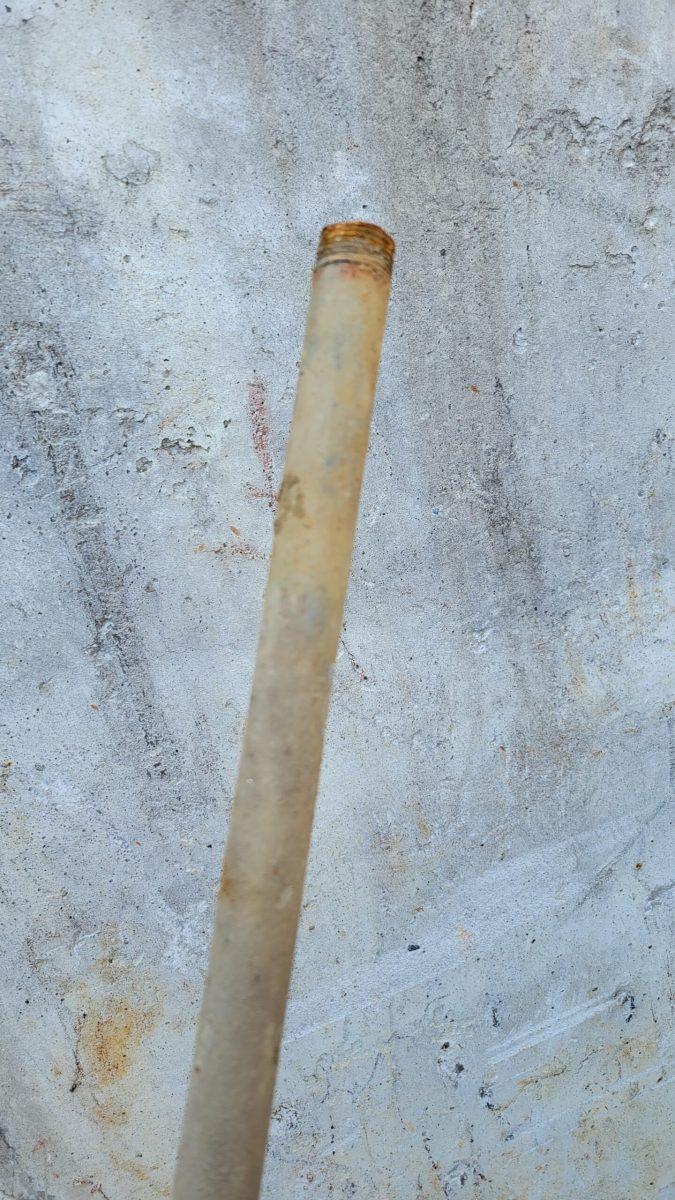In July of 2021, the state of New Jersey put a law in place and enacted a plan to check all service lines for lead, notify residents and begin the replacement process over the course of the next decade, with the aim of improving water quality and reducing the risks posed by lead.
The law also includes the replacement of galvanized pipes, pipes that have been coated with zinc to keep from rusting, and this part of the law affects the Glassboro area. The galvanized pipes need replacing due to being outdated and beginning to rust.
Glassboro Ordinance #22-26, which would bring Glassboro into compliance with the law by enacting its own plan for tackling the pipe replacement, will be brought to a public hearing on Nov. 22, 2022.
It’s unclear how many homes are predicted to be affected by the lead and galvanized pipes in the Glassboro area.
“We have zero actual lead pipes, but part of the law made galvanized pipes part of this also, so we are replacing all of the galvanized pipes that are in town,” said Chip Clark, the superintendent of the Glassboro Water Department. “And this law says that we are responsible all the way up to the house. We have, I think it’s like 87 that we know that it’s galvanized and they’re on the list to be replaced, and then there’s about 2,000 of them that are unknown.”
The replacement process is expected to be tedious and prolonged.
“From our perspective… We need access to your house… Some residents don’t want you in their house. One major thing from my perspective is we have to dig up your yard next to your house, so if there is landscaping or sidewalk, that all has to get ripped out and then you have to replace it,” said Clark.
Understandably, not everyone can afford the upheaval that the process entails.
“It would be very disruptive for me and my roommates’ everyday life because the pipes are located in our basement, where the house’s washer and dryer are also located and I’m assuming the company would need full access to the basement in order to remove the pipes and put in [a] new one,” said Josh Ayers, a Rowan student who rents an off-campus property. “I’m not sure how long this process would take and how long me and my roommates would have to go without having access to the washer to do laundry. And water throughout the entire house so that would be a concern for me.”
This lead-detecting process is costly.
“We are budgeting for it. It is a ridiculous amount of money. We, Glassboro, does all our own work, so we save a considerable amount of money. The project is still – I expect it to cost between 10 and 12 million dollars by the time it’s done,” said Clark. “If you look at other towns… Trenton was part of [it,] and they were like, ‘You know, we just wrote a check last week for 50 million dollars. We don’t have that kind of money.’”
After 25 years, Clark has never come across a lead pipe.
“We do 60 lead samples every six months… we have a — it’s called a Consumer Confidence Report that goes out every year… ]There were no [lead] detections out of any of our samples,” said Clark. “There are towns around us that actually use lead pipes, that’s what the law was written for. Fortunately, we don’t have a lead problem. Unfortunately, we still have to replace a lot of pipes.”
For comments/questions about this story tweet @TheWhitOnline or email [email protected].

























































































































































!["Working with [Dr. Lynch] is always a learning experience for me. She is a treasure,” said Thomas. - Staff Writer / Kacie Scibilia](https://thewhitonline.com/wp-content/uploads/2025/04/choir-1-1200x694.jpg)









































